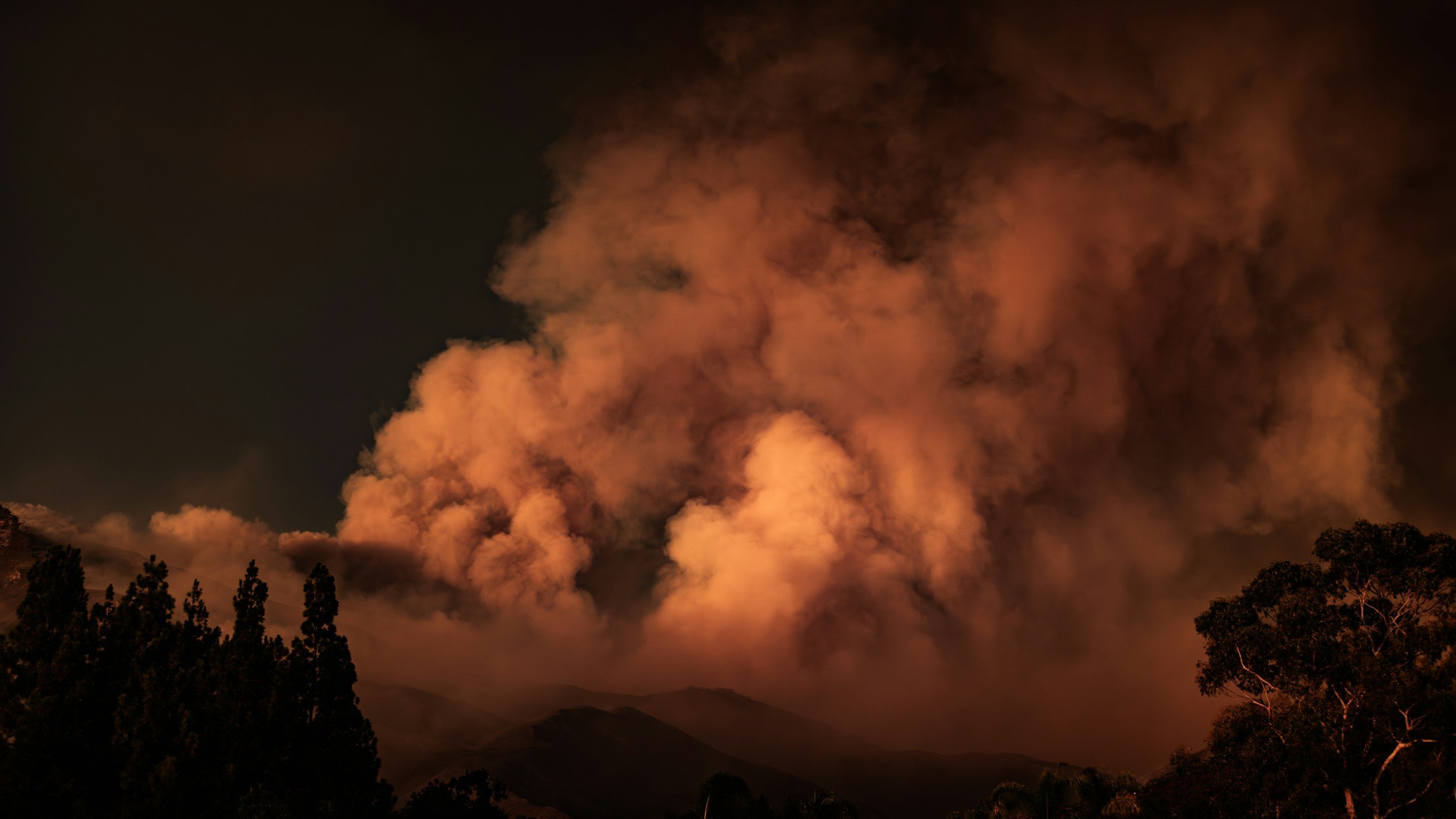The Invisible Wounds of California's Wildfires

We’ve all seen the images of Los Angeles with the burned-out buildings and communities reduced to rubble. The immediate focus is on stopping this hellscape catastrophe. Still, long after the last embers are extinguished, those who have lost their homes, neighborhoods, and communities will face lingering but invisible wounds. They’ll be vulnerable to a whole host of mental health issues, in some cases mild, and in some cases debilitating. These include depression, insomnia, panic attacks, and anger.
Maria Leister, JD, SMB, of the Harvard Program in Refugee Trauma, sheds light on the profound psychological impact of these disasters. "When we think about those displaced by fires, floods, or hurricanes, we're essentially dealing with internal refugees," Leister explains, adding: "While technically, they’re not ‘refugees’ because they didn’t cross international borders, what they experience can bear a striking similarity to what war refugees experience."
As Leister sees it, the loss of a home creates deep, invisible wounds that extend far beyond the physical structure. "People in California who have been forced from their homes are experiencing a multi-faceted loss," she states. "It goes beyond grieving for people or pets. It's the loss of an attachment with the place you call home, your environment, and your community."
She explains that the people who lost their homes in the fires are grieving over losing a way of life. "Their realities are shifting, with neighbors and other fixtures violently taken away. It's not just change that they will have to become accustomed to; it's an actual loss of something quite profound."
The psychological impact of these losses manifests in various ways:
Anger: "Anger is something to be aware of," Leister cautions. "It could come immediately or years later, depending on how individuals process events like this." This anger can be intense and long-lasting, often directed at various targets such as authorities, nature, or even oneself. It may manifest as rage over the perceived unfairness of the situation or frustration at the slow pace of recovery efforts.
Isolation: As the known community disappears, survivors find themselves part of a new community they didn't ask to join. This forced separation from familiar surroundings and social networks can lead to profound feelings of loneliness and disconnection. Survivors may struggle to relate to those who haven't experienced similar losses, further exacerbating their sense of isolation.
Fear of the Unknown: Questions like "Will I ever have stability again?" or "Can we ever rebuild?" plague survivors. This uncertainty about the future can be paralyzing, leading to anxiety and depression. The worry about potential future disasters can also interfere with the survivors’ ability to fully engage in the rebuilding process.
Heightened Responses: Survivors may experience unexpected triggers that evoke fear, anger, grief, and loss. These heightened emotional responses can be overwhelming and may persist long after the immediate danger has passed. Even seemingly unrelated stimuli, such as the sound of rain or the smell of smoke, can trigger intense flashbacks or panic attacks.
The Role of Community Support
Leister emphasizes the critical role of community support in healing. If you know someone who’s been harmed by the California fires, she advises being there for them and listening to them in a non-judgmental way. Try to discover what is most helpful for them. For some, this means emotional support including validating their feelings. However, for others, what they most want and need are practical solutions.
The visible scars on the landscape are likely to heal faster than the invisible wounds carried by those who have lost everything. As Leister says, "The trauma continues long after the cameras have gone. This is when the community needs to step in and provide more long-term support.”
War Correspondent Mitzi Perdue writes from and about Ukraine. She is the Co-Founder of MentalHelp.global, an on-line program that will begin providing online mental health support in Ukraine, available on-line, free, 24/7.
